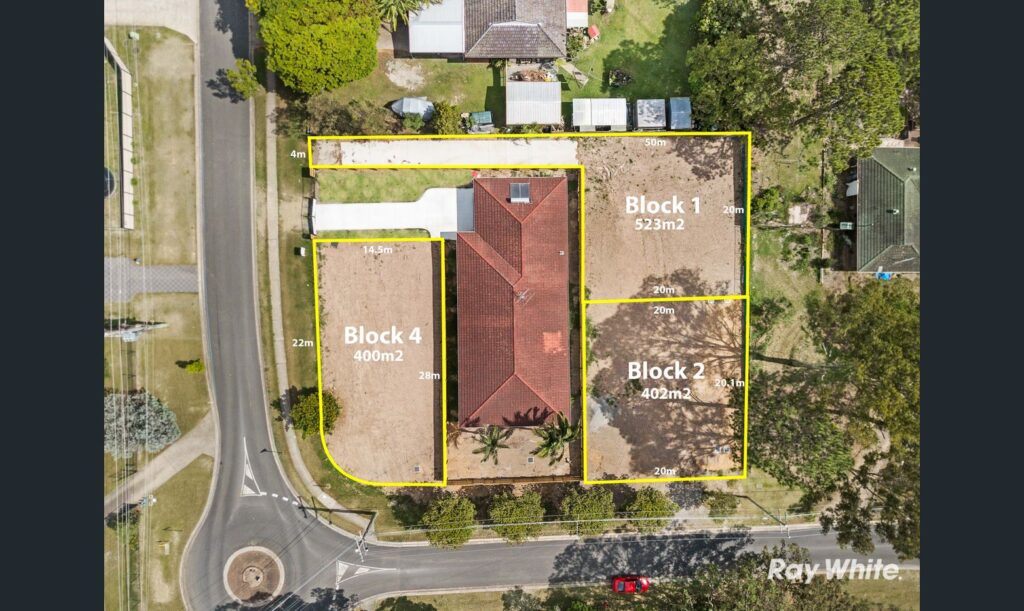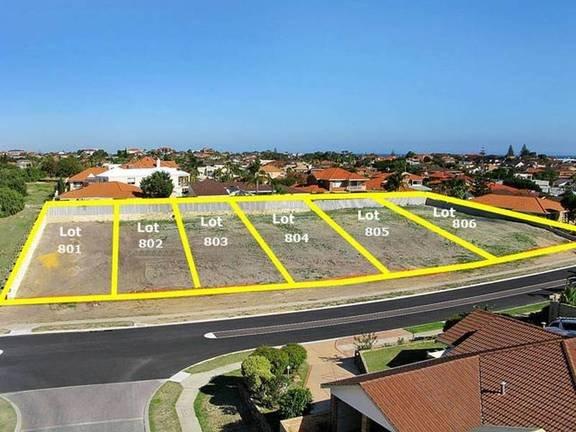Considering a SMSF setup before 30 June 2025. Pause.If there are no contributions or assets in the fund, you could be triggering thousands in avoidable compliance costs, all without gaining any strategic benefit. Why timing matters for SMSF setup Setting up an SMSF...
Joint Venture(JV) Tax Considerations for Property Developers
Joint Venture tax understanding for property developers in Australia

What is a (JV) for Property Development
A joint venture (JV) is a cooperative agreement between two or more parties in which all parties contribute their resources (such as money, skills, and assets) for the purpose of achieving a common goal. In relation to property development, a (JV) can involve two or more parties combining their financial, managerial and technical expertise to develop or redevelop a project or property.
Each Venturer has a separate tax implication and legal liabilities
When setting up a joint venture for property development, there are certain tax implications that should be considered. Generally, the parties may choose a structure that allows them to take advantage of existing tax incentives or concessions, including negative gearing and capital gains tax discounts. It is important for each party to consider the implications of any structure that is chosen. Each Venturer’s tax consideration of gains will be unique to each Venturer, one venturer may treat gains on revenue, while another venturer may treat the gains on a capital basis, according to their level of involvement and experience in property development.
See also https://umbrellaaccountants.com.au/property-developers/
The legal liabilities of each venturer are not joint and several as with a partnership agreement, the actions of each venturer have different legal implications for the other venturers.
How are Gains / Profits attributed to each venturer?
The Australian Taxation Office (ATO) applies income tax rules to JV arrangements, based on the degree of control exercised by each partner over the venture. Generally speaking, where the venturers have equal control over the venture, they will each be taxed on the profits generated.
Each participant in the JV will need to determine whether the proceeds they derive from the JV are from the sale of trading stock, on capital account, or a transaction that is part of a profit-making scheme.
Where one of the joint venturers is not carrying on a business, the land will not be trading stock and the proceeds from the sale of the land will either be received for the mere realisation of a capital asset (in which case a CGT liability may apply). The other venturer may be the driver in the JV, in which case the proceeding will be considered a profit-making scheme. Each joint venturer will be allowed to claim deductions according to their individual expenditures and circumstances. Certain deductions will be common to all joint venturers, whilst other deductions will depend on each venturer’s circumstances and the JV agreement.

In addition to income tax implications, the ATO also applies Goods and Services Tax (GST) to JV arrangements. GST will generally apply to any profits or returns generated by the JV.
It is important to note that there can be additional taxes and levies associated with setting up and maintaining a JV, such as stamp duty and land tax. Each state or territory in Australia has its own rules regarding these taxes and it is important to familiarise yourself with local regulations and taxation requirements.
How is a JV Company in Australia Taxed on its profits
Generally, a joint venture (JV) company in Australia is taxed on its profits in the same way as any other type of business. The JV must lodge income tax returns with the Australian Taxation Office (ATO) and pay income tax at the applicable marginal tax rate on any profits it makes. If GST is applicable to the services or goods being sold by the JV, then it will also have to register for and pay GST to the ATO. The JV may also be subject to other taxes and charges depending on the location of its operations, such as payroll tax, land tax, and stamp duties.
Each respective Venturer will treat the gains according to their respective tax arrangements independently of how the over venturer has been taxed, be it on a capital or revenue account.
GST Joint Venture – Forming, Changing or Cancelling
Goods and services tax (GST) joint ventures need to demonstrate that they are formed for specific projects. The participants share products or outcomes based on an agreed equity ratio. They do not share sale proceeds or profits.
All participants must be registered and account for GST on the same basis during the life of the joint venture.
https://www.ato.gov.au/Forms/GST-joint-venture—forming-changing-or-cancelling/
Division 51 of the GST Act provides that, where specified requirements are met, the parties to a JV may be treated as a single entity for GST purposes – referred to as a ‘GST joint venture’ (‘GST JV’). The parties must nominate one of them, or a third party ( JV Company), to be the GST JV operator, who is then responsible for accounting for any supplies or acquisitions made by the GST JV and submitting a business activity statement each tax period. The aim is to simplify accounting for internal transactions by having one entity only (the operator) account for them.
For example, where a land owner and a builder have a GST JV (with the builder nominated as the JV operator) any supply made by the JV operator (e.g., building services) to the land owner is not treated as a taxable supply (and, as such, the land owner will not be entitled to any input tax credits in respect of the acquisition).
Costs to setup and administer by your accountant

Seek Advice in Drafting any JV agreement
Finally, it is always wise to seek professional advice when setting up a JV, particularly when it relates to property development. Professional tax and legal advice can help ensure that you comply with the relevant tax laws and regulations and that the JV is structured in a way that offers the maximum advantages to all involved parties.
Please allow $5-$10K Setup for accounting fees for
- Liaise with your Solicitor for the JV agreement
- Setup the JV Reporting Company for each JV member
- Setup the Driver JV member company, and associated members
Project Accounting fees
- Allow around $13,200pa
- BAS’s JV Reporting Entity
- Financials for the JV,
- Each JV Member’s share of proceeds reported at the JV member level will be associated with tax issues to consider
- Mere Realisation CGT, in the venture of trade
SMSF setup: smart timing for FY2025
Considering a SMSF setup before 30 June 2025. Pause.If there are no contributions or assets in the fund, you could be triggering thousands in avoidable compliance costs, all without gaining any strategic benefit. Why timing matters for SMSF setup Setting up an SMSF...
Capital Gains Tax (CGT) and Options to Buy or Selling Properties – Tips and Traps
Important Timing Considerations – Especially Around Financial Year-End ⚠️ Important Timing Considerations – Especially Around Financial Year-End Scenario Overview Option Granted: 1 May 2024 Option Fee: $50,000 (non-refundable) to purchase a commercial property for...
First Home Owner Grant and Stamp Duty Concessions for a NZ Citizen in VIC, QLD, and NSW
Main Points Considered A New Zealand Citizen living in Australia, do they qualify for the First Home Owners Grant (FHOG) Also, can they qualify for the First Home Owners Stamp Duty Concessions What if they rent out the spare bedroom to help pay the mortgage? Scenario...
Australian Homeowner Moving Overseas and Selling Their Principal Place of Residence (PPR) – Avoiding a $295,200 CGT Bill
Principal Place of Residence Exemption Loss if Sold While Overseas Summary of how the Principal Place of Residence (PPR) Exemption is impacted by moving overseas. When Australian homeowners move overseas and become non-residents for tax purposes, selling their...
Investment Property Capital Gains Tax (CGT) Calculation with PPR Transition
Having an investment property prior or posted to it being a principal place of residence has tricky CGT Calculations. Capital Gains Tax (CGT) is an essential consideration for property owners when selling a property used for different purposes over time. This blog...
Understanding Land Tax in Australia
Picture of a vacant block of land to illustrate it may be subject to land tax What is Land Tax? Land tax is a state and territory-imposed tax on the unimproved value of taxable land owned by individuals, companies, and trusts. It is calculated annually based on a...
Temporary Resident Purchasing a Principal Place of Residence in Australia. What are the rules, regulations, and fees you need to understand?
Temporary Resident in Australia Suppose you are a temporary resident in Australia and want to purchase a Principal Place of Residence (PPR). In that case, there are restrictions and requirements you must follow, mainly governed by the Foreign Investment Review Board...
Seven changes impacting your super in 2025
Seven changes impacting your super in 2025 Superannuation rules are constantly changing, and 2025 is set to bring some updates that could affect your retirement savings. Whether you’re just starting to build your super or already planning for retirement, keeping up...
Tiny homes have excellent rental yields, income streaming and tax minimisation strategies. How do they compare to a Granny Flat?
What are the tax and investment considerations for a Granny Flat above versus a Tiny Home below? Income Tax Return Reporting - Income Streaming Tiny Homes Tiny home ownership does not have to follow the ownership interest of the underlying property ownership. For...
Easier for Victoricans to build Granny Flats from December 2023.
Secondary Dwelling From December 2023 the Victorian Government has passed planning changes to make it easier to build Granny Flats - or "small secondary dwellings", on existing homes. The Victorian Premier Jacinta Allan revealed that planning permits will no longer be...










